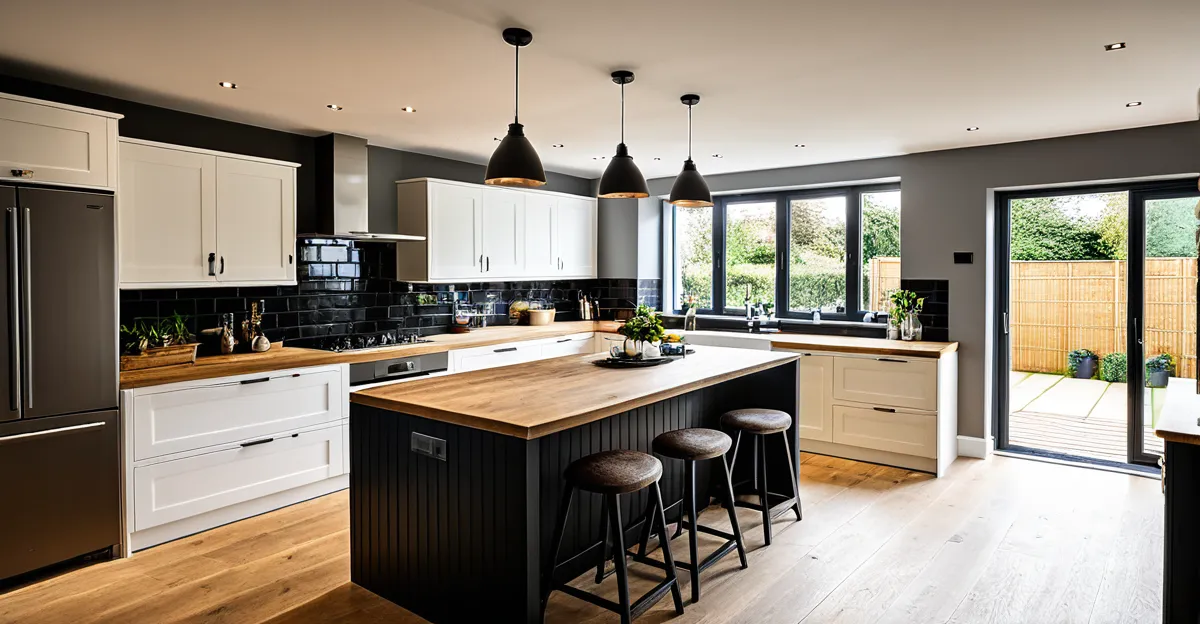Home Improvements with the Greatest Impact on UK Property Value
When considering home improvement projects UK owners pursue, not all renovations deliver equal impact on property value. Certain upgrades consistently prove most effective for those aiming to increase property value UK and secure a profitable sale.
Among the most sought-after renovation types in the UK housing market are kitchen refurbishments, bathroom upgrades, and adding energy-efficient features. According to recent studies, a modernised kitchen can add up to 6-8% on property value, while an updated bathroom typically contributes 4-5%. Energy efficiency improvements, like double glazing or insulation, not only appeal to buyers but may boost valuation by around 3%.
Also to discover : How Can You Achieve a Cozy Atmosphere in Your UK Home?
UK homeowners prioritise these upgrades because they blend functionality with buyer appeal, making them standout during resale. For example, adding open-plan kitchens makes homes feel spacious and modern, significantly increasing property value UK. Similarly, converting lofts or adding conservatories rank highly, providing usable space without extensive rebuilding costs.
By focusing on these profitable renovations, sellers can confidently invest where the return is measurable, ensuring their home improvement projects UK are both strategic and financially worthwhile.
Topic to read : How Can You Transform Your UK Home into a Cozier Haven?
Navigating UK Regulations and Permissions for Home Upgrades
Understanding UK planning permissions and building regulations is essential before starting any home improvement project. These legal frameworks ensure that renovations meet safety, environmental, and aesthetic standards. Most home upgrades require permission, especially if structural changes or extensions are involved. Securing the correct approvals prevents costly delays and legal issues later.
Approval processes typically start with submitting detailed plans to your local planning authority. This involves demonstrating compliance with rules on design, materials, and impact on neighbors. Fees vary depending on project scope; minor works might be less expensive, but larger extensions can incur higher costs. Always check with your local council to confirm required permissions.
A common pitfall is assuming all improvements are “permitted development,” which exempts some works from formal consent. However, many projects—such as roof alterations or adding outbuildings—need explicit approval. Overlooking this can lead to enforcement actions or forced reversal of changes. Consulting professionals familiar with home improvements legalities helps navigate these complexities and ensures your upgrade proceeds smoothly and within the law.
Cost vs Return: Analysing Value-Added by Home Improvements
Small but impactful decisions for your property’s future
Understanding home improvement ROI is essential before committing to any renovation. In the UK, popular upgrades like kitchen remodels, bathroom refurbishments, and house extensions often require significant upfront investment but can deliver varying financial returns.
Typically, a house extension commands one of the highest renovation costs but can add considerable value—sometimes recouping over 70% of the investment in market price increases. However, this varies by region; London and the South East tend to yield better returns on extensions than northern regions due to demand and property values.
Bathroom and kitchen renovations, while less expensive, generally offer a strong renovation cost benefit by improving appeal and competitive edge in resale. Data suggests that kitchen upgrades recoup approximately 60-70% of their cost, especially when high-quality fittings are used. Conversely, overly lavish or niche improvements might limit returns despite high spending.
Ultimately, weighing the house extension value UK against project costs involves examining local market trends and buyer preferences. Strategic choices tailored to your area maximize benefits without overshooting budgets, aligning improvements with actual market demand and value uplift.
Energy Efficiency Upgrades and Market Appeal
Enhancing value through greener living
In the UK property market, an improved EPC rating UK directly correlates with increased buyer interest and higher sale prices. Properties boasting a strong energy efficiency home profile stand out, appealing to eco-conscious buyers looking to reduce their utility bills and carbon footprints.
Studies show that green renovations significantly boost property value. For example, installing high-grade insulation, double or triple glazing, and energy-efficient heating systems can elevate your EPC rating UK, making the home more attractive. This focus on sustainability not only benefits the environment but also enhances the marketability of your property, setting it apart in a competitive space.
Upgrades such as solar panels, smart thermostats, and improved ventilation contribute to an overall energy efficiency home improvement strategy. These eco-friendly modifications are often seen as worth the investment by buyers, who appreciate long-term savings and comfort.
In conclusion, prioritizing energy efficiency through targeted renovations positively impacts your home’s value and appeal. Increasing your EPC rating UK is an effective way to future-proof your property while catering to a growing demand for environmentally responsible living.
Expert Tips for Maximising Property Value Through Improvements
When aiming to increase house value, expert home improvement tips consistently recommend prioritising upgrades that offer the greatest return on investment. UK estate agents stress that kitchens and bathrooms often lead to significant value gains. A modern, well-finished kitchen can transform a property’s appeal, while a refreshed bathroom adds both comfort and desirability.
Beyond these, small but strategic improvements — such as enhancing curb appeal with fresh paint, landscaping, or new front doors — are vital. Presentation matters greatly in the property market; a clean, clutter-free home with good natural light attracts buyers and justifies higher offers.
Timing your improvements is also crucial. Implement upgrades shortly before listing to ensure the property looks its best and benefits from current market conditions. Rushed or outdated renovations may not yield the expected increase in house value.
In summary, property selling advice highlights that targeting these key areas and managing timing carefully can drastically improve sale prospects and final price achieved. For a detailed guide on effective upgrades tailored to your property type, check out expert home improvement tips to maximise selling success.
